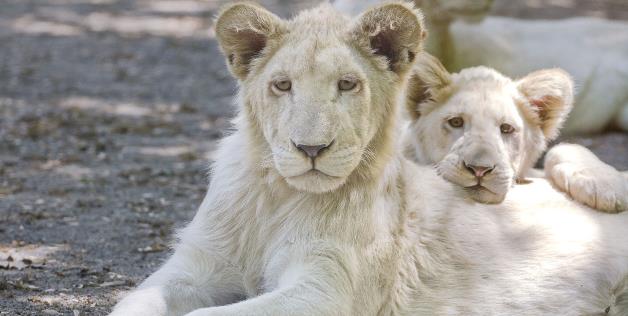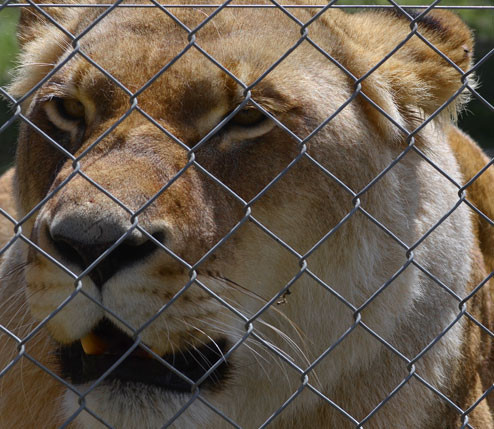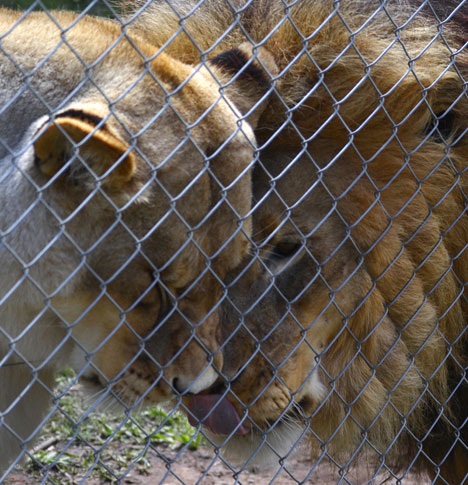Canned Hunting – Claims and Threats
By Chris Mercer – CACH
Canned Hunting – Claims and Threats exposes the claim by South African lion breeders is that – every tame lion shot is a wild lion saved. Like all hunting industry propaganda, the claim that every tame lion shot is a wild lion saved rests on false assumptions. The falsity is the notion that every hunter who is prevented from shooting a tame lion will automatically go out and kill a wild lion. In actual fact, canned hunters are a different breed altogether from those who regard themselves as ethical hunters.
A Short Life – Petted As A Cub – Caged – Shot For Fun
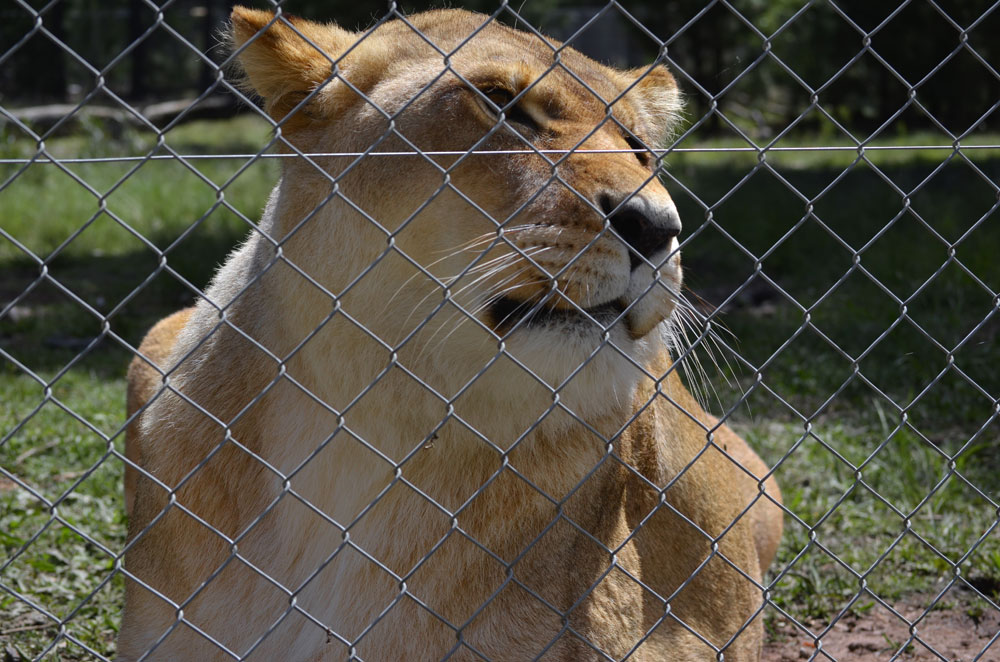
A true hunter would never stoop to killing a captive animal because of the absence of fair chase. He would rather go to say Tanzania and spend a week walking for miles through the bush, being bitten by tsetse flies and mosquitos and tolerating physical discomfort in the hopes of getting his lion trophy.
The canned hunter is not a hunter at all – he is a trophy collector. He wants to fly in to South Africa – be fetched at the airport and driven out to his five star lodge on a game farm near Johannesburg. He wants to have his lion trophy by 12:00 midday – his rhino trophy by 3.00 pm and then he wants to take his family to the nearby Casino for an evening of gambling on the roulette table. If prevented from killing tame animals, the canned hunter will not go out hunting a wild lion. He does not want to be bitten by tsetse flies and mosquitos.
To Be Killed – Not By A Hunter – But By A Coward
The Lion Bone Trade
There is no doubt that the growing trade in lion bones is going to adversely impact the wild lion populations. Unfortunately for lions, the Asian traditional medicine practitioners regard the bones of wild lions a being more “potent” than those of captive – bred ones. So the law of unintended consequences will apply here: as the existing lion bone trade (a spin-off from canned lion hunting) allows more and more Asians to become invested in the growing trade, so the demand for wild lion bones will grow. Prepare for a poaching frenzy of wild lions every bit as egregious as the existing slaughter of rhino.
In summary – the official CITES data indicates that the legal trade in dead lion parts from South Africa to Asia is a comparatively new industry that has been allowed to grow exponentially year on year since 2008. No measures, such as trade restrictions or bans, have been put in place.
Why Not Ban It?
There is no prospect of a ban on canned hunting in South Africa. There is no ethic of animal welfare in South African government structures. On the contrary, the President himself has stated publicly that “compassion for animals is ‘un-African’”. There is a strong hunting culture at all levels and across the racial divide.
The Sadness In This Photo Is Heart Breaking
In the absence of any culture of animal welfare there is no constraint on the exploitation of animals. Government believes that lion farming is a form of poverty alleviation, giving employment to trackers, taxidermists etc.
So much so – that the lion farmers are currently pressing government to transfer jurisdiction for lion farming from the Department of the Environment and Conservation to the Department of Agriculture.
This will undoubtedly happen – and landowners will continue to farm with lions and rhino and other erstwhile wildlife, just as if they were chickens, sheep or cattle. Lion and other “game” farming will become even more entrenched.
Campaign Against Canned Hunting (CACH) is the only NGO in S.A. (possibly the world) that focuses exclusively on the canned lion hunting issue. For more than ten years, founders Chris Mercer and Bev Pervan have laboured to raise awareness in civil society. Chris has travelled around SA and UK, talking on radio, providing articles to the media and using the internet to best advantage.
For years they worked at a policy level, giving input to government on the TOPS (Threatened and Protected Species ) regulations, but the hunting industry has been too strong. It had become apparent that there is no chance of effecting change from within.
CACH has decided that the only way to stop the canned hunting industry is to cut off the sources of funding – all of which come from the developed world.
Here Chris Talks To Evan Williams Of ABC TV At Jukani Predator Park – An Ethical Non-Breeding Lion Facility
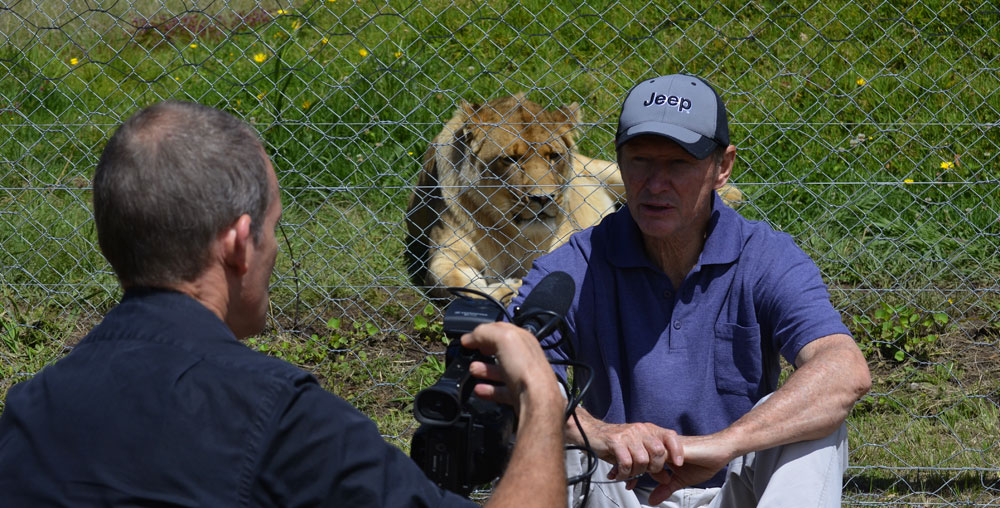
That Means:
1. Working with conservation and animal welfare orgsanizations in U.S.A. and Europe to get the status of lions raised to endangered in U.S.A and to get the import of lion trophies banned in the European Union. This would cut off about 90% of the industry’s income.
2. Educate the public not to indulge in cub-petting and to avoid facilities that offer cubs for petting.
3. Educate volunteers to avoid supporting lion farmers posing as ‘wildlife sanctuaries.’
It Is Only By Understanding Canned Hunting – Claims and Threats – and through education and awareness – that we will be able to close this dreadful industry down.

